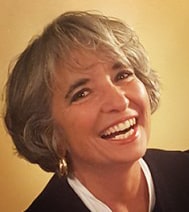Recent years have seen a profound shift in thinking about health and medicine. The public is clamoring for medicine that makes sense. Intelligent people are asking, “If orthodox medicine is really effective, why are antibiotics, the mainstay of conventional medicine, now considered so dangerous?” And, “Why are classrooms filled with asthmatics and ADD children, when, only a generation ago they were rare?” Arising from such concerns is a trend toward a more holistic viewpoint.
The underlying concept in holism is that we are each an integrated whole; we are not fragmented into separate parts falling into different specific illnesses or diagnostic categories.
Homeopathy views the person as a whole. This combines their mental state including prevailing thoughts, their emotions such as moods, their physicals such as headaches, and their generals such as their temperature. Success in terms of health must include all these areas or else freedom from ill health will not be achieved.
Whether we realize it or not, our ill health is closely related to the ideas we have and the emotions we experience. These are all symptoms that need to be observed and used to determine the correct remedy. In most cases, the cure will not follow unless we adhere to this fundamental rule of classical homeopathy.
 I am a homeopath with a worldwide practice working with families and individuals via Zoom. I'm also a teacher and most importantly, a mom who raised my now-adult children depending on homeopathy over the last 31 years. I lived decades of my life with food intolerances, allergies, and chemical sensitivities until I was cured with homeopathy, so I understand pain, anxiety, and suffering. You may feel that your issues are more severe or different than anyone else’s, but I have seen it all in my practice and in my work in India. My opinion is that nothing has come close to the reproducible, safe and effective results that my clients, students and I have achieved with homeopathy.
I am a homeopath with a worldwide practice working with families and individuals via Zoom. I'm also a teacher and most importantly, a mom who raised my now-adult children depending on homeopathy over the last 31 years. I lived decades of my life with food intolerances, allergies, and chemical sensitivities until I was cured with homeopathy, so I understand pain, anxiety, and suffering. You may feel that your issues are more severe or different than anyone else’s, but I have seen it all in my practice and in my work in India. My opinion is that nothing has come close to the reproducible, safe and effective results that my clients, students and I have achieved with homeopathy.
Call today and learn how homeopathy might just be the missing piece in your health strategy.
Joette is not a physician and the relationship between Joette and her clients is not of prescriber and patient, but as educator and client. It is fully the client's choice whether or not to take advantage of the information Joette presents. Homeopathy doesn't "treat" an illness; it addresses the entire person as a matter of wholeness that is an educational process, not a medical one. Joette believes that the advice and diagnosis of a physician is often in order.
We've provided links for your convenience but we do not receive any remuneration nor affiliation in payment from your purchase.
The Author disclaims all liability for any loss or risk, personal or otherwise incurred as a consequence of use of any material in this article. This information is not a substitute for professional medical advice, diagnosis or treatment.
Do most homeopaths use classical homeopathy? What are some other forms of homeopathy being used?
Too many methods to list…but in the US, those who are well trained are usually in the classical camp.
Classical is the foundational homeopathy but there are as many ideas around homeopathy as there are practitioners.
There are homeopaths who use many remedies at one time. Such as in what are called combination remedies. They do not follow the laws and principles set out by Samual Hahnemann, MD, the father of homeopathy.